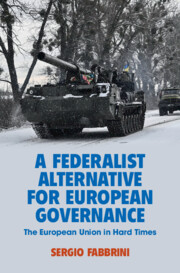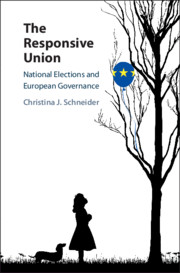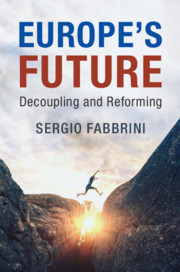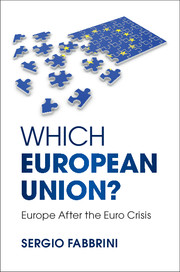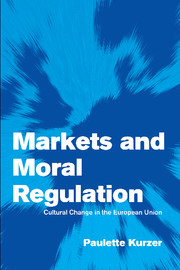A Federalist Alternative for European Governance
How did the European Union (EU) deal with the crises of the 2010s and 2020s? These crises arose in policy realms that were the province of national governments, so the European Council was the driving institution for managing them. National governments were able to take decisions, but their decisions were contradictory and unaccountable, and regularly hindered by divisions between them. In order to manage a policymaking process dominated by the claims of national and sub-regional governments, Sergio Fabbrini argues that intergovernmental governance has had to transform the EU into an international organization. Fabbrini shows that differentiated integration would further distance the EU from the project of an 'ever closer union' and, on the basis of a comparative federalism approach, he proposes an alternative paradigm of a multi-tier Europe with a federalist core to balance national sovereignties and supranational authority.
- Investigates how the EU managed a number of different crises including sovereign debt, the COVID-19 pandemic and the energy and security crises induced by the Russia-Ukraine war
- Demonstrates how resilience in the face of crises led to a strengthening of the intergovernmental side of the EU, signalling its gradual transformation into an international organization
- Utilizes the relevant experience of federations by aggregation to formulate a federalist alternative model to the future inter-governmentalization of the EU
Reviews & endorsements
‘A very welcome addition to the literature on the European Union. A major expert on comparative federalism, Sergio Fabbrini rightly argues for the need to consider the EU in federalist terms. This book presents important proposals for how to move the EU from its crises-ridden penchant for intergovernmentalism and towards federalism which deserves to be properly addressed.’ John Erik Fossum, Professor, ARENA Centre for European Studies, University of Oslo
‘This federalist alternative gives a fresh and compelling perspective on how the EU can address current challenges, particularly as it confronts the need to develop new competences and take on new member states in the face of a hostile geopolitical environment.’ Erik Jones, Survival
Product details
December 2024Adobe eBook Reader
9781009573078
0 pages
This ISBN is for an eBook version which is distributed on our behalf by a third party.
Table of Contents
- Acknowledgements
- Preface
- 1. Between crises and decision-making
- 2. The decision-making structure of the EU
- 3. The sovereign debt and pandemic crises
- 4. The Russian war and its consequences
- 5. The federalist alternative on governance
- 6. National sovereignty in unions of states
- Bibliography
- Index.

